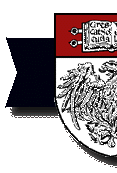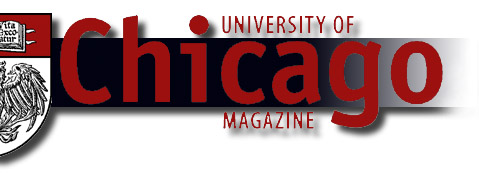|
The 51-member Council of the University Senate gathered in March
to vote on the report of the Faculty Committee for a Year of Reflection.
The committee’s report—which the Council of the University Senate
approved by a vote of 32-1—makes several recommendations to ensure
that changes in the size of the College take place in ways consistent
with the University’s historic commitment to top-quality teaching
and research.
Since 1996, the Year of Reflection Committee—formed in re-sponse
to President Hugo Sonnenschein’s call for a heightened priority
to collegiate education and an increase in College enrollment from
its then size of 3,500 students to approximately 4,500 students
over ten years—has analyzed the pros and cons of ex-panding the
College.
According to the report, the committee’s task was “to organize
and articulate faculty-wide reflection on academic issues of the
present in order to recommend a course of action economically viable
for the University’s future but in keeping with the traditions of
its past.”
The committee began by studying the financial context in which
the recommendation to consider increasing undergraduate enrollment
was made. Though the University had a budget deficit of $22.7 million
in 1993–94, it was back in the black by the 1996–97 academic year,
and the report thus focused attention on long-term budget concerns,
calling for in-creased spending on the libraries, the physical plant,
the neighborhood, and faculty salaries, as well as building up the
endowment. “After more than a year of investigation of the University’s
financial condition,” the committee wrote, “we are sobered by what
we have come to understand about the seriousness of the challenge
we face.”
Facing that challenge, the committee suggested, requires a partnership
of the faculty and administration and careful monitoring of all
steps taken.
“We have a unique intellectual culture at Chicago,” says Melvyn
Shochet, the Elaine M. and Samuel J. Kersten professor in physical
science and spokesperson of the Committee of the Council. “We want
to be sure that this culture is preserved by continuing to provide
a Chicago-style undergraduate education in a larger College, while
also maintaining the very best graduate teaching and research.”
To that end, the report of the Year of Reflection Committee makes
a series of recommendations aimed at maintaining the quality of
incoming College students, maintaining the quality of undergraduate
teaching, and maintaining the quality of the faculty. They include:
• The College Admissions Committee should assess the quality of
the applicant pool and report their findings at least once a year
for the next two years.
• The College should offer a report “indicating how the in-structional
demands associated with a larger College could be met in such a
way as to maintain or improve the quality of undergraduate education.”
• The University should assess the impact of expanding the College
on both graduate education and faculty research, with an eye to
“how shifts in teaching responsibilities and academic culture will
affect our ability to attract and retain a first-rank faculty.”
To ensure that College students continue to receive a rigorous,
faculty-taught Chicago education, while faculty and graduate students
can still do groundbreaking research, the report suggests several
tactics for a larger College. Of the plan to increase College en-rollment,
Shochet says, “I’m optimistic. I think it will allow us to provide
a Chicago education to more of the very best students, and to do
it in a way that preserves what makes Chicago such a unique institution.”
|



